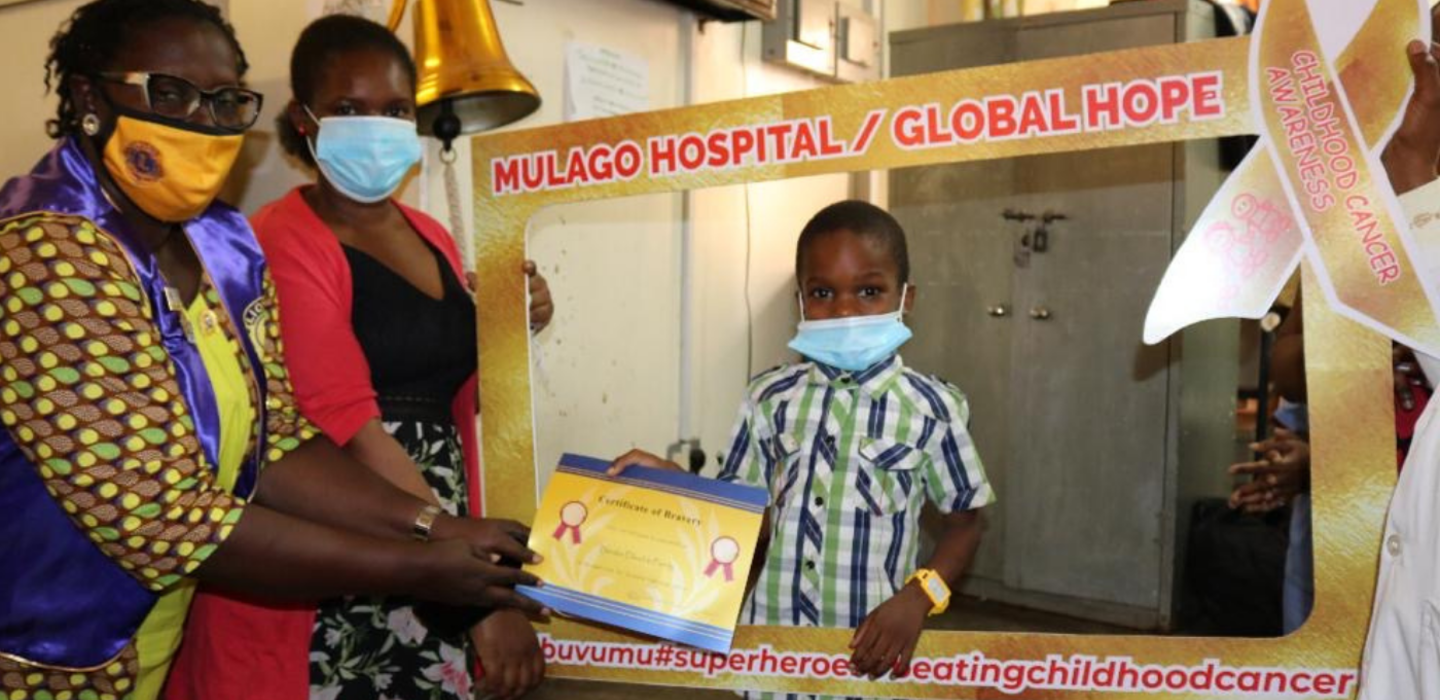Big problems require extraordinary solutions. For any parent and family, no problem is greater than their child’s cancer diagnosis. The hopelessness that comes with fathoming senseless, imminent death is boundless.
Global HOPE and its partners have demonstrated that deaths of children with cancer in Africa are not inevitable.
Each year, the worst fears of hundreds of thousands of children and families in sub-Saharan Africa come to pass. More than 90 percent of children with cancer in this part of the world die. These deaths, the immense losses, are not inevitable. In North America and other high-income countries, more than 80 percent of children diagnosed with cancer are cured.
Taking lifesaving childhood cancer care to sub-Saharan Africa is the mission of Global HOPE, a program of U.S.-based Texas Children’s Hospital and Baylor College of Medicine, one of the largest and topmost institutions in pediatric cancer care. Partnering with Global HOPE are Lions Clubs International Foundation (LCIF) and Lions.
Global HOPE is focused on systematically curbing death among children with cancer in sub-Saharan Africa. Through partnerships with ministries of health, tertiary medical centers, medical schools, and philanthropic organizations such as Bristol Myers Squibb Foundation and LCIF, Global HOPE supports access to cancer care centers for thousands of children in Botswana, Malawi, and Uganda. The cure rate and quality of life of children at these Global HOPE centers have improved tremendously.
Young survivor of childhood eye cancer treated at Uganda’s Mulago Hospital through Global HOPE and LCIF partnership.
However, the majority of children with cancer in Africa still have no access to pediatric cancer care through trained specialists, diagnostic facilities, and cancer drugs and other therapies. In most sub-Saharan African countries, fewer than 20 percent of children with cancer receive essential pediatric cancer care.
To cure many more children with cancer in Africa, Global HOPE joined with LCIF and Lions in 2019. Backed by LCIF, Lions have helped tackle health issues globally, as evidenced by more than 400 million people who now can see. Since 1990, LCIF’s SightFirst grant program has helped treat and prevent blindness in 112 low- and middle-income countries. Lions have achieved this monumental success by partnering with health authorities, mobilizing communities, and investing more than US$370 million in building and equipping eye care centers, training eye specialists, and supplying medicines for eye diseases. It is dedication like this that is helping carry out the Global HOPE mission.
The partnership between Global HOPE and LCIF is exciting for me as both a Lion and pediatric oncologist. More importantly, it is an inflection point for many children and families in Africa. In the spirit of service, Lions have gone to work and are making a difference at Global HOPE-affiliated pediatric cancer centers in Africa. It is a new day of fresh, boundless hope for the children of Africa. It is exhilarating to see Lions unleash their spirit of volunteerism on yet another major problem!
To learn more about how LCIF and Global HOPE are partnering to fight childhood cancer in sub-Saharan Africa, visit lionsclubs.org/GlobalHOPE.
Lion Dr. Joseph Lubega is a pediatric hematologist-oncologist with Texas Children’s Hospital and Baylor College of Medicine’s Global HOPE program. He is also a member of Uganda’s Lions Club of Kampala New Century.
The coronavirus (COVID-19) pandemic has impacted communities around the world in different ways. To ensure we’re serving safely wherever we live, Lions should follow the guidelines of the Centers for Disease Control, World Health Organization or local health authorities. Visit our Serving Safely page for resources that can help you safely serve your community.

